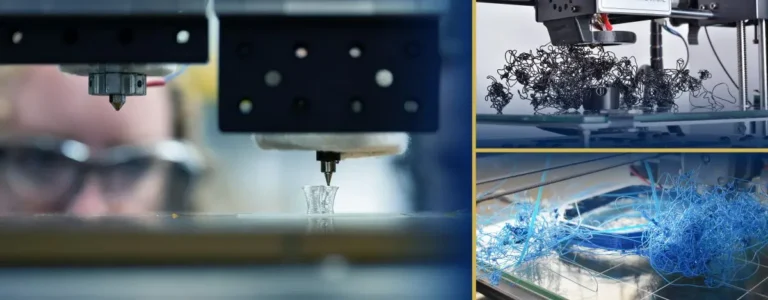Revolutionizing Manufacturing with AI
Artificial intelligence has reshaped industries like healthcare and finance, but manufacturing has long posed unique challenges. Factories demand precision, real-time decision-making, and adaptive workflows — areas where traditional AI often struggles.
Now, researchers at California State University, Northridge’s Autonomy Research Center for STEAHM, supported by the U.S. National Science Foundation (NSF), have introduced MaVila (Manufacturing, Vision, and Language), a specialized AI model designed to understand and optimize factory operations.

What Makes MaVila Different?
Unlike general-purpose AI, MaVila is trained exclusively on manufacturing data. It can “see” and “talk,” combining image analysis with natural language processing (NLP) to:
-
Identify defects in parts by analyzing real-time factory images.
-
Explain issues in plain language, making it accessible to human workers.
-
Suggest process improvements and optimized settings for machines.
-
Communicate directly with equipment, executing automatic adjustments.
The AI was fine-tuned using 3D-printed part images with visible defects, correctly identifying flaws such as cracks and blobs in most test cases.
Accessible AI for Small and Medium Manufacturers
One of MaVila’s biggest advantages is its low data requirement. Traditional AI tools need vast datasets, often too expensive for smaller manufacturers to collect. MaVila’s training method significantly reduces data dependency, making advanced AI-driven automation more accessible to small and medium-sized enterprises (SMEs).
Powered by High-Performance Computing
The model was developed using the NSF-funded National Research Platform (NRP) Nautilus, a collaboration among 50+ institutions led by UC San Diego. High-performance computing (HPC) resources enabled researchers to:
-
Simulate real factory conditions.
-
Validate edge-case scenarios for accuracy.
-
Test real-time robotic and mobile device integration for automated machine adjustments.
Boosting U.S. Manufacturing Competitiveness
By improving productivity, quality control, and worker decision-making, MaVila aims to strengthen America’s position in global manufacturing. Experts believe AI tools like MaVila will:
-
Enhance domestic production capabilities.
-
Support workforce training for future-ready industries.
-
Fuel economic resilience and competitiveness in a rapidly evolving global market.
“This project reflects years of public investment in AI, high-performance computing, and cross-institutional collaboration,” NSF stated, emphasizing its commitment to translating cutting-edge research into practical industry applications.



 Share your Details for subscribe
Share your Details for subscribe